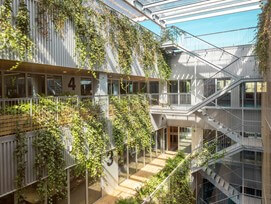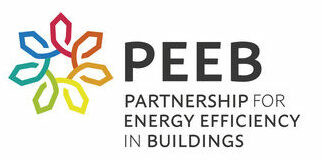The effects of climate change on communities around the Mediterranean are bound to be severe, given that the Mediterranean Basin is warming up 20% faster than the global average. Spatial planning, urban design, construction technology and architecture play a central role in mitigating and adapting to ever more frequent extreme climate events in the region.
On 22 March 2021, the UfM Secretariat, in collaboration with PEEB and the Cities Climate GAP Fund, organised a virtual workshop titled “Natural cooling: an indispensable element of future-oriented housing policies and projects in hot climates” to show ways and means of planning, designing, and financing energy-efficient, thermally adapted large-scale building projects that are well embedded in climatic conditions in the Mediterranean region.

In the keynote speech, Christiana Hageneder, head of PEEB Secretariat, highlighted the benefits of better building design to reduce the cooling needs and utility costs. Grzegorz Gadja (European Investment Bank, EIB) underlined that EIB is highly interested in financing sustainable housing projects that ideally feature the promotion of locally adapted architecture, and building materials, as well as the inclusion of water and greenery elements to reduce cooling needs. Cecilia Colomer (Institut Municipal de l’Habitatge i Rehabilitació de Barcelona) illustrated design strategies that Barcelona promotes to avoid solar radiation and enhance ventilation such as building orientation and residential blocks allowing for natural cross ventilation. Giulia Macagno (Cities Climate GAP Fund) presented the newly launched GAP Fund and its support for early stage project development, among others for natural cooling in buildings projects. Jeremy Bourgault (PEEB) gave an overview over available support for project development and financing in the Mediterranean through the PEEB, while Helen Naser (PEEB) introduced representatives from highly relevant other ongoing projects that promote and support energy efficiency and natural cooling in buildings in the Mediterranean (meetMED II, BuildME, CoolME)
UfM Member States and participants of the online workshop are now encouraged to continue identifying and promoting affordable and sustainable housing projects in their countries through an energy-efficient and natural cooling approach.
